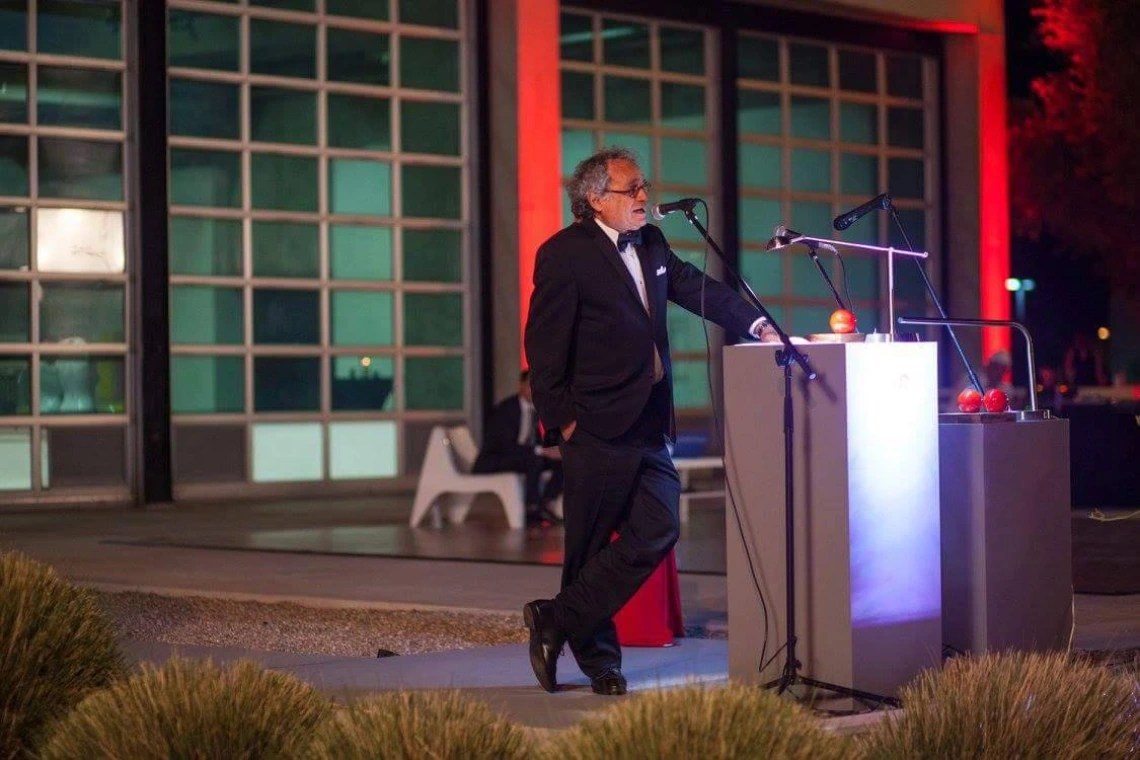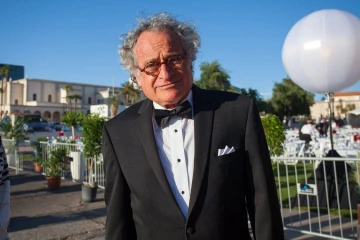UA professor Rosenblum receives Local Genius award

Mort Rosenblum gives his acceptance speech for a Local Genius Award in 2016.
Andrew Brown
UA professor Mort Rosenblum, co-director of the Center for Border & Global Journalism, received a Local Genius award from the Tucson Museum of Contemporary Art on April 16, 2016.

Journalism professor Mort Rosenblum
Andrew Brown
Rosenblum, a UA journalism student in the 1960s who grew up in Tucson, was a longtime foreign correspondent for the Associated Press and former editor of the International Herald Tribune. He was AP bureau chief in Africa, Southeast Asia, Argentina and France, and is the author of several books, including "Coups and Earthquakes."
Here's his acceptance speech:
"I’m still chuckling over the “genius” part of this kind honor, but I am certainly local. My dad moved us to Tucson in 1946. He owned El Tampico Bar, which was just about where I am now standing.
"In the mid-‘60s, I left that old airport on South Sixth to spend a lifetime poking around the world. I covered war and mayhem in grim places, hung out with Antarctic penguins dressed like I am tonight, ate fancy foie gras in socialist France. I’ve lived on five continents but came home regularly to the best place I know.
"Now I’m privileged to return each year to the UA Journalism School to teach basics I learned there – along with things we once didn’t worry much about, such as how to come back alive with the story. Sam has a hook ready in case I launch into a speech. Tonight is for having fun. But just a few words that matter… Terror is a big topic these days. But what terrifies me is how little most Americans know about the real world. We want to do the right thing yet don’t take the trouble to consider what that might be.
"For all our new ways to see over our horizon, we’ve never been so spectacularly clueless. Karaoke journalism lets everyone to step up to the mike whether they know the lyrics or not. Real reporting demands being there to kick a story’s tires, to verify facts, to understand nuances.
"Citizen journalist? Would you want a citizen surgeon removing your gall bladder? Reporting isn’t brain surgery. But a doctor can kill only one patient at a time. A journalist can provoke a war that sets the Middle East aflame – and create people who hate us oceans away.
"Journalism is a craft, a calling and a profession. But today its best practitioners are often lost in a tower of babble. We rely so heavily on broadcast news, and it’s scary that some of the best TV reporters are John Oliver and Samantha Bee. Tuning it all out is no answer. Imagine driving hell-bent down Mt. Lemmon with your eyes shut. You’ll crash, for sure. The only questions are how badly, and who else you take with you.
"Remember Plato’s Cave. He imagined prisoners chained in a cavern, backs to the opening. Their reality is a series of distorted passing shadows reflected on a wall. Each looms suddenly, scary and without context. And then it is forgotten, leaving no lesson behind.
So before that gong, thank you, MOCA, my Tucson homies, for honoring me and, by extension, my colleagues who still report the old way and now must train a new generation.
In these perilous times, you can’t learn to report world news the way you learn to swim, by simply jumping into the deep end. When Jacqueline Sharkey asked me to come home each year, we imagined a UA-based center to combine new tools and techniques with bedrock values.
Now, thanks to David Cuillier, head of the J-School, John Paul Jones, dean of our college, and co-director Bill Schmidt, it is a reality. This matters. We’ve all got a world to save."
Other media
- Mort's radio interview with the Jake Feinberg Show (starts at 2:00 mark)
- Daily Wildcat story on Rosenblum

